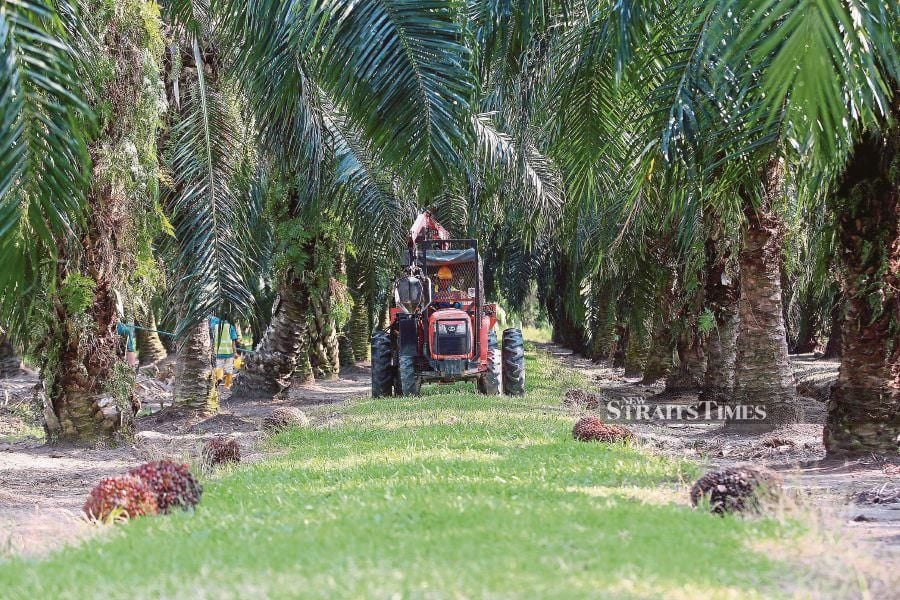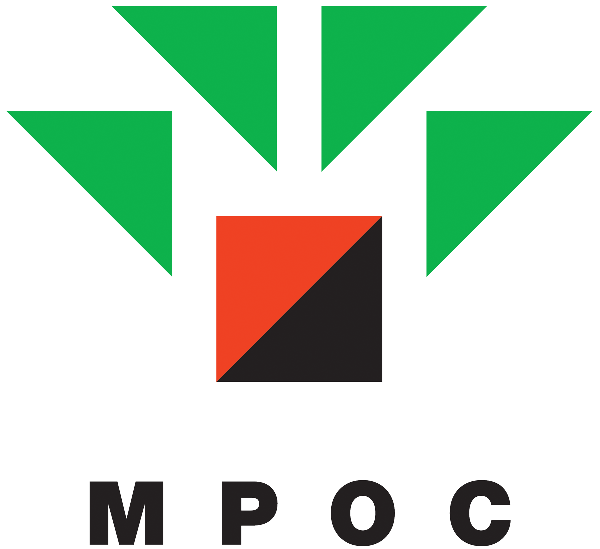
Put an old oil palm planter in muddy boots at the same table as other stakeholders in shiny shoes, and you’ve got more comedy than conversation.
The planter speaks in rainfall, yields and pests. The other side speaks in Scope 3, environmental, social and governance (ESG) metrics, profit guidance, blended finance and dividend payouts. Both nod politely over kopi, quietly wondering: “What on earth did he just say?”
This is the oil palm language gap. It has existed for decades, but in today’s world of climate acronyms and capital markets, the gap feels wider than ever. On one side sits the planter who knows his palms better than his grandchildren’s birthdays.
On the other are non-planters – bankers, fund managers, policymakers, analysts, consultants, and non-govermental organisations among others – who see palm oil not as soil and sweat, but as risk, opportunity and a line item in their portfolio.
When these two worlds collide, bridging the gap takes more than humour. It takes interpreters.
Rise of the translators
The unsung heroes of this story are the internal sustainability teams – the industry’s translators.
Their job is to turn PowerPoint ESG sermons into planter-speak and planter wisdom into boardroom slides.
They can sit through a session on Scope 3 disclosures and later explain to the estate manager: “Boss, basically it means we need to stop the emissions, or the European Union (EU) won’t buy our oil.” They decode Brussels into Bahasa Ladang.
This “translator class” has quietly reshaped the sector. It is one of the reasons palm oil has actually moved faster than most other commodities and business sectors in sustainability implementation.
Since the heady days of the 2000s, palm sustainability professionals have done more than build bridges within plantations; they’ve spilled into other industries, shaping banks, insurers, consumer goods companies, even tobacco and airlines.
Palm oil became a training ground for “straight-talking sustainability”, and its graduates now influence how the world understands climate, risk and responsibility.
That is something critics rarely admit: the sector’s own translators have become its biggest export.
Two worlds, two dialects
For planters, the language of work is straightforward. It’s about rainfall, fertiliser per ha, yields, Ganoderma, replanting and whether the harvesters turned up.
Their wisdom is lived, not spreadsheeted. A good planter can read palms like a doctor reads pulses. Ask about ESG disclosures, and you’ll get a squint as though you’ve just spoken Martian.
Non-planters, meanwhile, live in acronym-land.
They speak of ESG, SDG, RSPO, TCFD and now EUDR – and more to come. (That’s environmental, social and governance, Sustainable Development Goals, Roundtable on Sustainable Palm Oil, Task Force on Climate-Related Financial Disclosures, and EU Regulation on Deforestation-free Products, respectively, if you’re curious.)
Their vocabulary runs from Scope 1 to Scope 3 emissions, from carbon markets to reputational exposure.
For them, palm oil is not about pests and harvesting rounds, but about regulatory compliance, investor confidence and capital flows.
And then there are the analysts.
They hover at quarterly briefings, waiting for one question: “What is your profit guidance and what is your dividend payout?”
Forget pests or worker shortages; to them, the health of a plantation is measured in earnings per share and cash yield.
The planters may smile politely, but in their hearts, they mutter: “Profit guidance? Ask the weather and government policy on workers.”
Meanwhile, policymakers churn out new rules. Consultants produce frameworks and models. NGOs push campaigns. Everyone sleeps in the same bed but dreams different dreams.
When dialects collide
When these dialects clash, hilarity follows. A consultant announces: “Adopt carbon removal projects in your supply chain.” The planter hears: “Another gimmick? Will it fix my harvester shortage?” Translation: stop the smoke, or consumers may not buy.
A fund manager declares: “Unlock value through ecosystem collaboration.” The planter mutters: “Share my fertiliser with my neighbour?” The reality: mills, smallholders, traders, and banks must actually work together or get left behind.
An analyst leans forward: “Will dividends rise in line with crude palm oil prices?”
The planter thinks: “Depends if the workers show up and the fields don’t flood.”
And when someone says “stakeholder engagement,” the planter imagines a long afternoon, lukewarm coffee, and another workshop – while his harvesters are still missing from the field.
Politeness, paperwork and pitfalls
Often, Asian planters add another twist: politeness.
They will sit through jargon-laden sermons, nodding graciously even as acronyms whizz overhead like low-flying aircraft. Better to look agreeable than to interrupt. But too many nods can turn into lopsided deals – one side leaves with thicker files, the other with thinner wallets.
That is why translators matter. They prevent “yes, boss” smiles from turning into “no, jalan” disasters. Sustainability teams bridge not just cultures, but must balance sheets and field realities.
Comedy or survival?
Sustainability in palm oil cannot survive unless the boots and the suits march in step. The planter grows the crop. The non-planters control the flows of money, rules and perception. Without one, the other stumbles.
When they talk past each other, mistrust grows.
Planters think the suits live in ivory towers. The suits think the planters are stuck in the past. Both are wrong, and both are right. The only way forward is translation with respect.
Tell the planter that carbon projects mean continued buyers. Tell analysts that the “yield gap” is simply the space between a dividend and a letdown. Tell the policymaker that sustainability frameworks must survive not just in Brussels but in a smallholder’s kebun in Sabah.
Baby Boomer and Gen X planters, in particular, have little patience for buzzwords. Their careers were forged in mud, El Nino and monsoons, not in acronyms.
They remember propping up collapsing bungalows with timber beams or fixing washed out bridges. Their language is simple: get the yield up, cost low, control the pests and diseases, keep workers safe.
Now imagine telling some smallholders: “We need to align with EUDR disclosures.” They will ask: “EUDR? New fertiliser brand?”
It is not ignorance; it is simply two worlds colliding. The challenge is translation without dilution.
The missing mud
But let’s not let the non-planters off the hook. Too often they forget the mud. A fund manager may lose sleep over ESG ratings, but a planter lies awake wondering if workers will show up or if the mill boiler will groan through one more crushing day.
Frameworks and disclosures don’t harvest fruit bunches – harvesters do. Without boots on the ground, no slide deck will save the crop. Preaching sustainability requires remembering that plantations live or die by mud, not models.
And beneath that mud lies another reality – competitor agendas and trade rivalries.
Sustainability, for all its noble language, is also a business game, and one often refereed by those who never planted a single palm. Compliance raises costs, and while it is now growing as an accepted price of doing business, planters would do well not to chase the shimmering mirage of premiums that usually vanish once compliance becomes the norm.
Yet not a single drop of palm oil goes to waste – even non-certified oil finds a buyer. After years of costly compliance, many growers are left with modest returns and weak demand, fastened in an evolving system they can’t exit. Meanwhile, the reputational and financial rewards are claimed downstream, where traders, retailers, and brands wear sustainability like a marketing badge
And here’s the irony: the flow of data, trust and transparency is also often one-way. Growers are asked for disclosures, audits, and traceability, but the same level of openness is seldom reciprocated.
If we are truly to “sleep in the same bed”, then transparency must be mutual. Otherwise, the bed may be shared – but while planters dream of keeping the industry alive, others dream of squeezing yet more juice out of the same fruit.
Beyond language: Purpose
At its heart, the challenge is not just about language, but misalignment of purpose.
Different purposes without empathy for others drive different languages. That’s where Babel begins.
NGOs focus on people and planet – often forgetting that without prosperity, there will be no people or planet.
Bankers care about compliance metrics and grievance responses, rarely appreciating what these mean in practice. Analysts, to be fair, are sometimes more understanding. Governments everywhere? Too often, their real concern is political survival.
The challenge of translating marketplace and regulatory demands into grower action is not a catwalk. It is slog, sweat and persuasion. The biggest challenge has always been change management – not only with growers, but also with management, accountants, procurement and sales teams. Without empathy across these silos, translation risks becoming just another PowerPoint.
Same oil, same goal
Ironically, I still believe we all want the same thing: palm oil that survives and thrives. The planter dreams of higher yields and lower costs.
The banker and fund manager crave lower risks and fatter returns. Policymakers want compliance ticked. Analysts want dividends announced. NGOs want their objectives fulfilled. Consumers just want guilt-free margarine and shampoo.
On paper, alignment looks perfect. In practice, the stumbling block is language: first understanding and trust of each other, then wrestling through differences to find real solutions.
But first, bridging the gap means replacing jargon with plain language. It means finding a middle ground between talk of yield per hectare and talk of return on investment.
The Asian norms of nodding politely while not fully understanding cannot go on indefinitely, particularly when the goalposts keep shifting. Translation must be real, and so must sincerity.
And for that, you need interpreters – sustainability teams, agronomists, legal experts who also speak ESG, bankers who have walked muddy estates, and planters willing to sit through workshops without dozing.
So the next time boots and suits share a room, remember: Decarbonisation means stop the smoke. Disclosures mean show your cards. Collaboration is walking together.
It doesn’t matter whether you measure in fresh fruit bunch or return on investment. What matters is that palm oil continues to feed, fund and flourish – for all relevant stakeholders and the billions who never think where their soap or cooking oil comes from, as long as the price is right.
Same oil. Different words. Different key performance indicators. Same goal.
Joseph Tek Choon Yee has over 30 years’ experience in the plantation industry, with a strong background in oil palm research and development, C-suite leadership and industry advocacy. The views expressed here are the writer’s own.
Source: The Star





